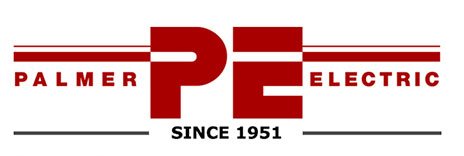Electrical Inspection FAQ’s
What is a home electrical inspection?
A home electrical inspection is a comprehensive check of the wiring, outlets, and circuits in your home to ensure that they are up to code and safe for use with the appliances in your home. It is important to get an electrical inspection when buying a home, making major changes, or if you have problems with your outlets or appliances. A home electrical inspection should always be conducted by a licensed electrician.
When should I call for an electrical inspection?
You should always schedule a home electrical inspection in each of these events:
- Your home is 40 years old or older
- You purchase a previously-owned home
- Your home has undergone a major renovation
- You have added major new appliances in the last 10 years
Additionally, here are some of the problems that let you know you need your home’s electrical inspected:
- Unusually high electric bills, even though you have been running appliances and AC the same amount
- Sparks coming from an outlet or fuse box–this is never normal and should be checked immediately
- Tripping circuit breakers, meaning the load on your circuits needs to be evaluated and adjusted
- Burning smell coming from an outlet
- Hot switches or sockets
- Humming or crackling noises coming from outlets
- Flickering lights, usually caused by an overloaded circuit
- Incorrect sockets in the bathroom, which should include two buttons two control for humidity
- Extension cords used to regularly power appliances due to insufficient circuits
What is checked during electrical inspection?
Elements of an electrical inspection can vary, but some of the basics are:
- Proper outlet and light switch installation and function
- Grounding elements on outlets and appliances
- Inspection of wiring
- Testing of the electrical panel and circuits to ensure proper load and function
- Assessment of surge protection
A detailed report of findings is then created with recommendations and immediate solutions for hazards.
What do they look for in an electrical inspection?
The licensed electrician inspecting your home will look for hazards and anything that is out of code. Some of the most common findings include:
- DIY wiring, exposed wires, or outdated, dangerous wiring, such as aluminum wiring
- Electrical panel boxes that have been modified improperly and/or have exposed wiring
- Paint in electrical outlets causing them to overheat
- Ungrounded outlets
- Two hot wires running to the same circuit
- Overloaded circuits and/or insufficient capacity of the home’s circuit system
All of these are fire hazards that have to be corrected for the safety of the home and the people who live there.
How much does a residential electrical inspection cost?
Cost varies according to the size of the home and your needs. Call Palmer Electric today at (407) 646-8700 for a quick, no-obligation free estimate on your home electrical inspection.
